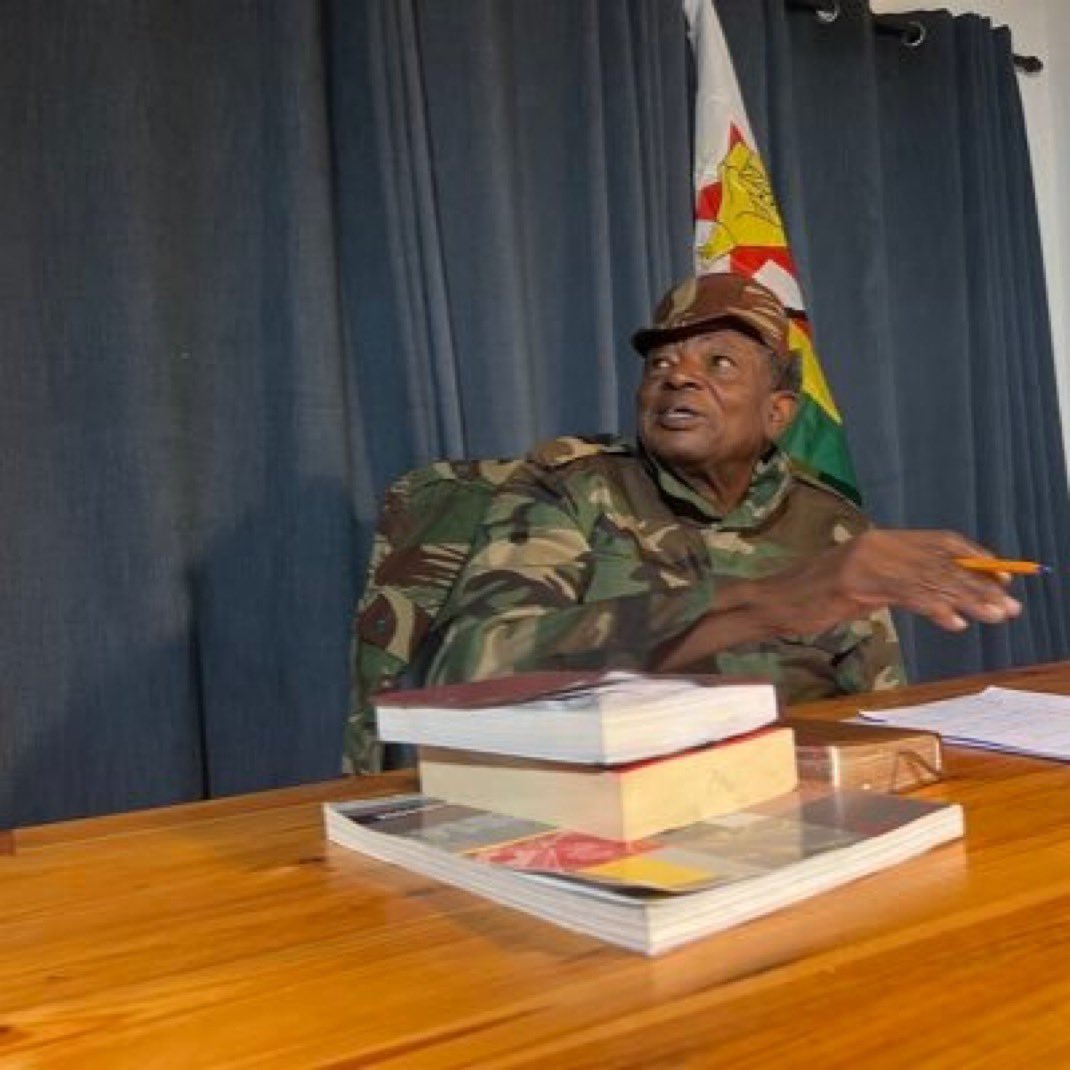Uncertainty surrounds the planned March 31 protests led by Blessed Geza, a former Zanu PF central committee member and war veteran, as doubts persist over whether Zimbabweans will rally behind his call or dismiss it as another internal political maneuver.
Authorities have already deployed security forces in key urban areas, raising concerns about a possible violent crackdown if the demonstrations gain momentum.
Geza, who reportedly went into hiding after being targeted by a police manhunt, recently reappeared on social media, urging people to join what he called a “mega demonstration” on Monday.
Clad in military fatigues, he called for nationwide protests, accusing President Emmerson Mnangagwa of corruption and poor governance while demanding accountability and systemic reform.
Police previously declared Geza a person of interest in February, linking him to allegations of undermining the authority of the president. National police spokesperson Paul Nyathi encouraged citizens to remain peaceful, assuring that law enforcement agencies would monitor any potential disturbances.
Despite Geza’s efforts to rally support, political analysts are divided on whether the demonstrations will succeed. Some argue that internal divisions, a lack of clear objectives, and public indifference could doom the movement. Others suggest growing frustration over Zimbabwe’s worsening economic conditions might spur participation.
Although Geza claimed support from opposition figures like Nelson Chamisa, Tendai Biti, and Job Sikhala, Chamisa swiftly distanced himself, stating he had not engaged in any recent discussions and had no involvement in the planned demonstrations.
The Zimbabwe National Liberation War Veterans Association (ZNLWVA) also denied any connection to Geza’s campaign. Meanwhile, a rival faction of the war veterans, led by Andreas Mathibela, has remained silent. ZNLWVA spokesperson Cornelius Muwoni indicated they only became aware of Geza’s plans through social media.
Security insiders believe the heavy police presence reflects concerns that the protests are more about internal Zanu PF power struggles than genuine grassroots mobilization. Some suggest the demonstrations may be a strategy by one faction to undermine another rather than a movement aimed at addressing national grievances.
“This raises questions about whether the demonstrations are truly about challenging government failures or simply advancing factional interests,” said one security source.
With the protest date approaching, increasing political infighting and factional disputes seem to have overshadowed broader public concerns.
“Zimbabweans are once again being used as pawns in a political contest that has little to do with their actual struggles,” another security source observed.
Political commentators remain cautious, citing Zimbabweans’ history of ignoring protest calls.
Stephen Chan, a Professor of World Politics at the University of London, predicted a low turnout due to divisions among war veterans and opposition groups. However, he warned that a harsh police response could unintentionally boost support for Geza.
“If Mnangagwa and Zanu PF are smart, they will allow the protests to proceed peacefully and later downplay their significance,” Chan said.
“He should let Geza speak freely and then claim that Zimbabwe upholds freedom of expression.
“Zanu PF often struggles to resist overreacting, and that could backfire,” he added.
Prominent political analyst Eldred Masunungure noted that although economic hardships are intensifying, Zimbabweans may not have the appetite for large-scale demonstrations like those seen in the 1990s.
He explained that major uprisings typically occur spontaneously, catching authorities off guard—unlike Geza’s pre-announced protest, which gives law enforcement ample time to prepare.
“Successful uprisings are rarely pre-planned like the ‘March 31 uprising’; they usually erupt as sudden expressions of public anger, leaving little room for government forces to counteract them,” Masunungure stated.
“Geza might have had a greater impact by calling for a stay-away rather than urging people to take the risky step of confronting state security forces.”
He also argued that Zimbabwe’s opposition is too weak to mount an effective challenge.
“The opposition is barely surviving, and war veterans alone won’t shift the balance. The only way any faction could succeed is if it mobilizes the general population, as happened in November 2017. However, I don’t see many Zimbabweans responding to Geza’s call or any similar appeal,” Masunungure concluded.
Political commentator Kudzai Mutisi echoed this sentiment, dismissing the likelihood of successful protests.
“These demonstrations won’t gain traction because those leading them lack organization, public appeal, and a credible alternative vision for Zimbabwe,” he said.
“There are no strong opposition voices in the country. The opposition is fragmented and ineffective, making it impossible to mobilize Zimbabweans against Mnangagwa.”

For comments, Feedback and Opinions do get in touch with our editor on WhatsApp: +44 7949 297606.
